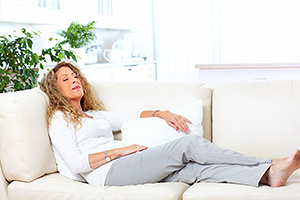With all that is happening in the World today, you might feel stressed and overwhelmed with your day to day. That is why in this article we will mention 5 tips to help you relax even on the toughest days.
One of the objectives of relaxation techniques is to help you reduce the high levels of activation of the autonomic nervous system during stressful situations, that generate muscle tension, in the presence of an alert state to our body.
These techniques we will indicate are widely used as psychological intervention strategies, and have demonstrated their effectiveness. Your choice should be established based on the technique that makes you feel most comfortable and produces the greatest effect.
A) One of these techniques is passive relaxation, it helps you control the mind and the stressful stimuli that pass through it, using a passive procedure, going from the mind to the body. It consists of a short phrase repetition, in order to avoid bringing any other image or thought to our mind and if a thought or image invades our consciousness, we must return to that short phrase.
It is considered a passive technique since it does not seek to fight obsessive thoughts, but to focus concentration on the chosen phrase (Mantra), all our attention should be directed to it, so that the person is exempt from being able to attend to external stimuli that generate stress.
B) Another useful technique is active relaxation, which goes from the body to the mind. The order to relax the body is face, neck, and shoulders, then arms and hands, then the leg region and finally the chest, abdomen, and lumbar area.
The second phase is checking, this consists of feeling whether the different muscles of your body remain relaxed. The third phase is mental relaxation; while our whole body remains relaxed, we must mentally evoke an image, in order to also relax our mind while relaxing our body. This exercise will last between 10 and 15 minutes and it is essential to do it thoroughly and continually.
Benefits of learning to relax
• Provide sensations of well-being and tranquility.
• Improve sleep quality.
• Increase the ability to cope with stressful situations.
• Provides benefits in our body, such as a decrease in heart rate, blood pressure and / or muscle tension, thereby reducing the risk of cardiovascular problems.
• Contributes to our state of mind, helping to improve mood and increase emotional stability.
• Its practice increases the capacity of concentration and memory.
• Decrease physical pain, such as headaches, stomach pain, nausea.
• Helps increase self-control capacity.


